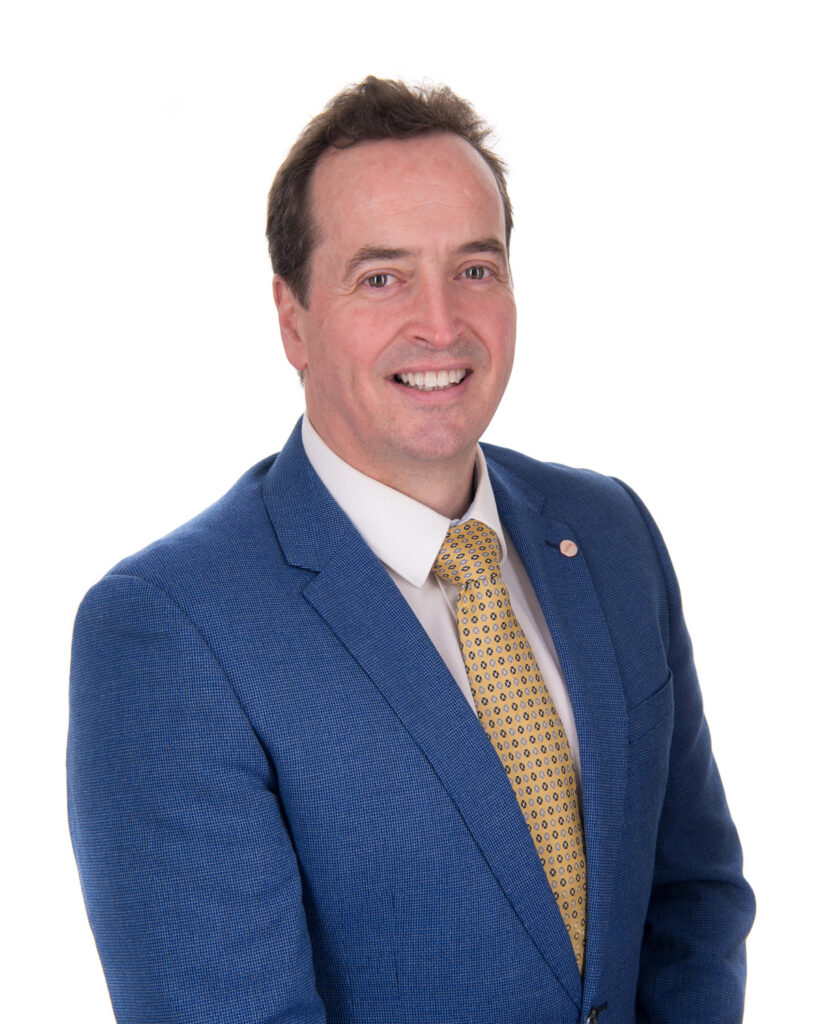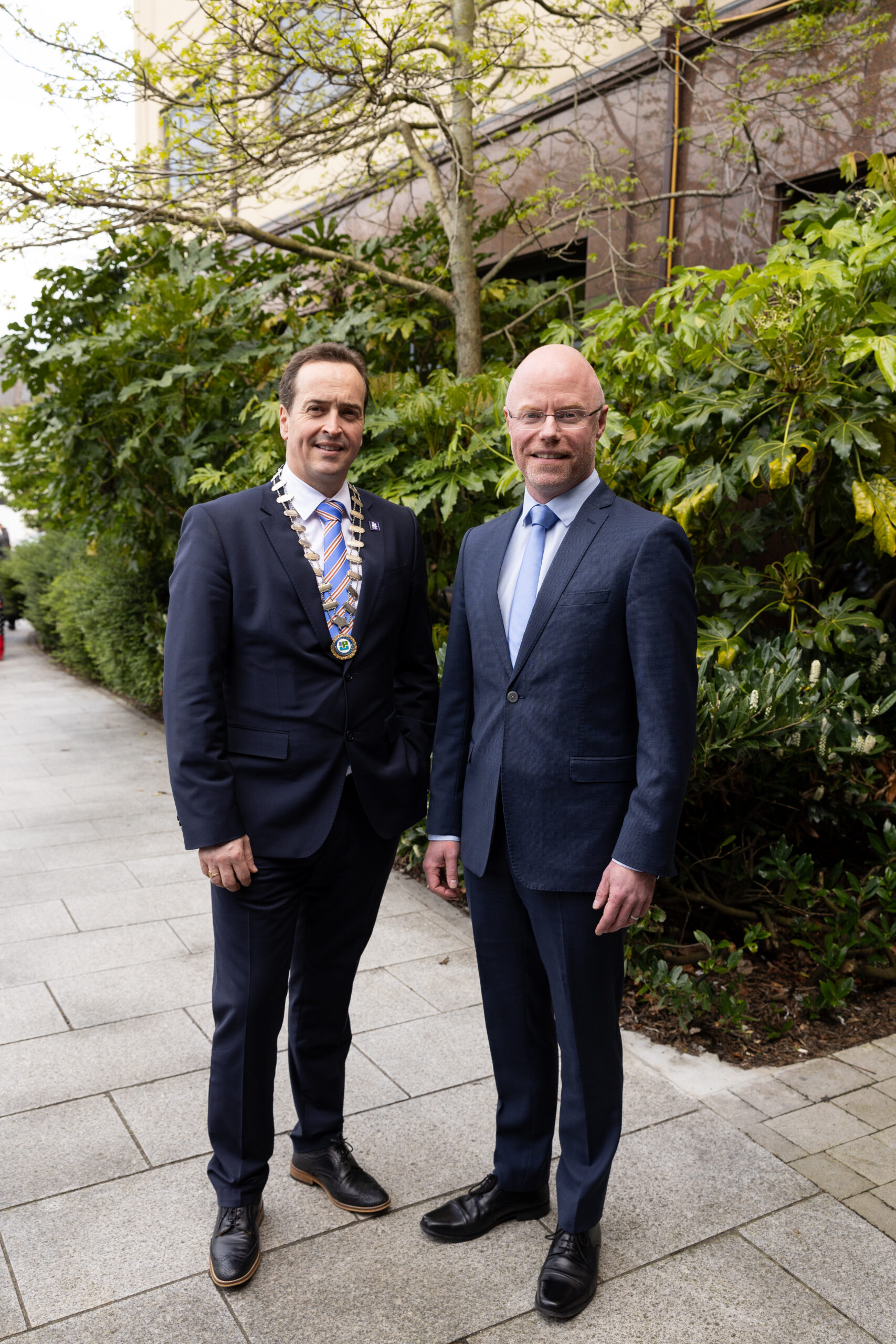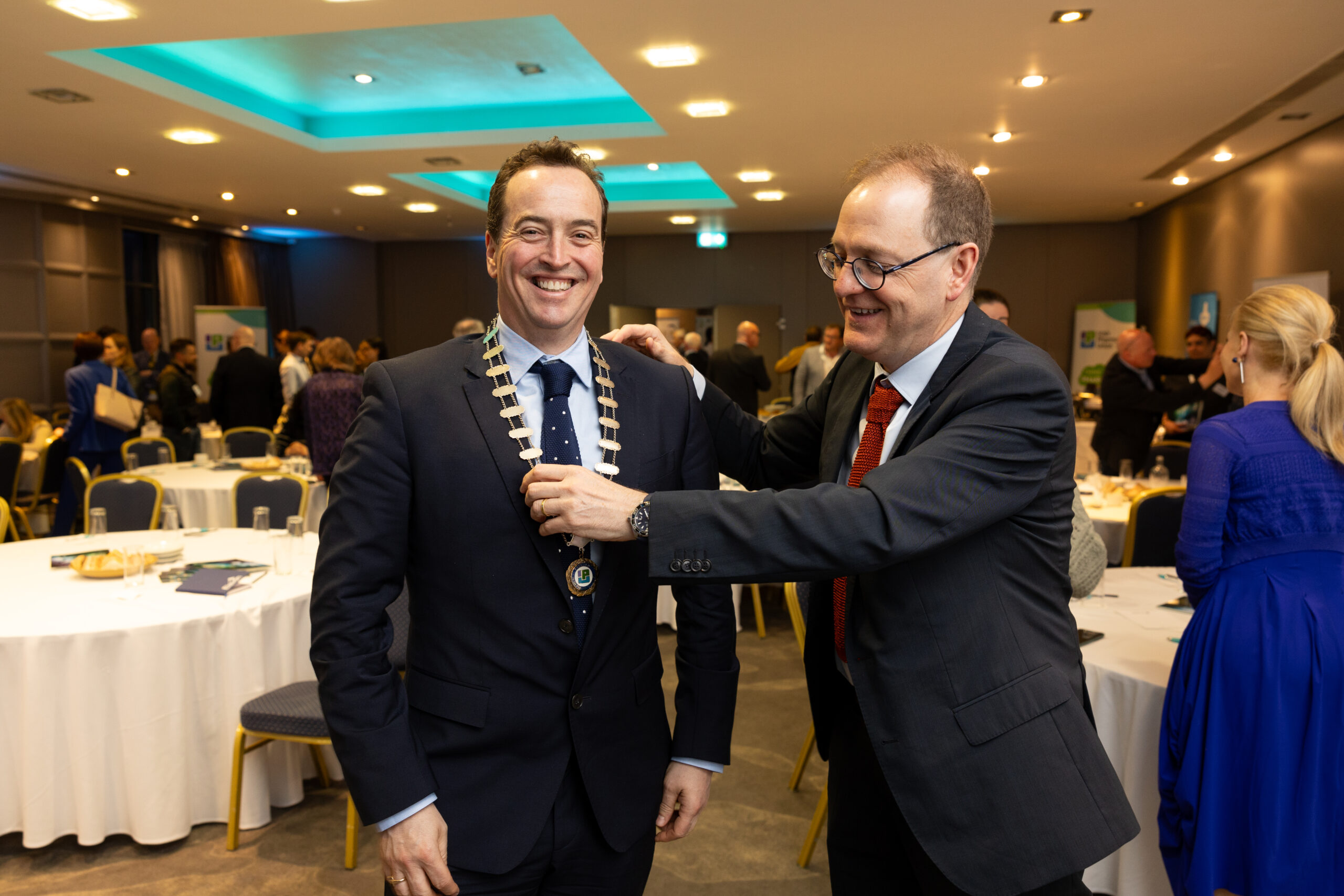Home » Interview with new IPU President Tom Murray
Tom Murray was appointed as IPU President at the recent AGM. Based in Donegal and the owner of three pharmacies, Mr Murray has been involved with the IPU for over 20 years. In an interview over the following pages, Mr Murray answers some questions to provide readers with a greater insight into his own background and motivations, as well as his priorities for the IPU and community pharmacy during his tenure.

I have been involved in the IPU for 23 years to varying degrees, sometimes very heavily involved at committee level local in my region, the Northwest, and nationally through the IPU’s Pharmacy Contractors Committee (PCC), and at other times, less intensely. Irrespective of my level of involvement I have always been acutely aware of the incredible role the IPU plays in advocating for community pharmacy. This advocacy takes many forms, from professional services and recognition of our unique skillset as pharmacists, to proving our commitment to ongoing education and training, right the way to the one I’ve traditionally been most involved with, the finances of the sector. I was involved directly in the past in securing Ministerial recognition that the only voice for pharmacy is the IPU, this at a time when competitor organisations tried to mimic our role. However, it soon became clear, not just to pharmacists but to other State stakeholders that the IPU is the only organisation with the experience, knowledge of the sector and a vision for pharmacy representation.
One of the things I have noticed most is that community pharmacy is quite a solitary profession at times, especially in the independent sector. This can often lead into a trap, where one believes that a problem with a State agency may be unique to one contract or individual, and the tendency is to resolve an issue by oneself. From experience, I know there is no such thing as a unique issue with any State agency, and that what appears as such, is always a common problem and best resolved through the IPU, because then it is resolved nationally. Time and experience has allowed me to observe how much more effectively the IPU can resolve issues on a member’s behalf, than an individual contractor can. The level of expertise currently available in Butterfield House is outstanding, and I don’t know if members realise how strong a resource we have.
Being an IPU member fosters collegiality and helps with the isolation sometimes experienced by members. Whilst we have moved to more online meetings for training etc, I would personally like to see a return to some in-person meetings, as they offer a chance to network and an increased level of discussion and group learning for all involved. Maybe that is an age thing — at 51 I am a people person and think human interaction is crucial. I’m not a great advocate of online meetings or online socialising.
I put myself forward to be President because I was asked to do so, by committee and non-committee members. I suppose I have been involved centrally in the talks process with the Department of Health and it is good to have a link between the Presidency and the talks. It is also a really exciting time to be President of the IPU — through the talks process and the work of Minister Donnelly’s Expert Taskforce we have the potential for generational change in community pharmacy practice. In the first instance, it is the first time in 16 years we are being given a fair hearing in relation to investment in, and the sustainability of, the sector and the services we provide. I cannot promise anything, but I am one hundred per cent confident we are putting our best foot forward and making progress not made for a very long time. The Taskforce offers the potential, if funded and respected properly, for our role to fundamentally change and offer far more services to the public than we have before. We have the potential to bring care closest to the patient through the community pharmacy network and to provide professional satisfaction, whereby a pharmacist’s clinical skills will be recognised, and the role will be expanded. This used to be a pie in the sky idea, but today we stand on the fringe of development, so there is no better time to be President of the IPU.
“From experience, I know there is no such thing as a unique issue with any State agency, and that what appears as such, is always a common problem and best resolved through the IPU, because then it is resolved nationally.”
I am the son of Irish emigrants to England, my father was a subcontractor for over 40 years and taught me the importance of independent thought (I would not be a good employee), and work ethic. I started working on the buildings at a pitifully early age and learned the meaning of hard work — there was no forgiveness in that environment for slacking because you were family. My mother was the centrepiece of the family home, and still is, in many ways. I have one sibling, a brother, and four children, who range in age from 19 to 24, by the time this interview is published.
I have qualified from five universities between BSc, MSc and postgrad diplomas. I am a bookworm and a binge reader. who qualifies as a nerd.
Labhraímse Gaeilge achan lá den saol le mo pháirtí Siún agus creidim go smior go rud ollmhór í ár dteanga dúchais denár bhféiniúlacht agus ár gcultúr. Ní amhaín sin ach is teanga galánta í. I would like to see coiste na gaeilge reintroduced to the IPU and am happy to be a part of that.
I am an avid GAA fan, having played and coached both football and hurling, including at county development squad level, so it is a bit of an obsession.
I have been a qualified mediator for several years, focusing mainly on workplace and BTB mediation, but have also done some work on community mediation. I am fascinated by the science of negotiation and have studied negotiation skills with Harvard Law School, which has enabled me to coach those skills with many business groups and political parties in Ireland.
I am hugely interested in current affairs and political history, and I was part of an intensive campaign around protecting the Good Friday Agreement from the threats posed by Brexit, which led me to make representations in the European Parliament and to very senior officials in the Washington government.
As outlined in my speech to our conference (on 27 April), I passionately believe in the role pharmacists can play in improving health outcomes for Irish patients and in reducing the burden on other sectors, within both primary and secondary care. To achieve that, we need to see the two blockers removed; these are the 16-year pay freeze, exacerbated by a regressive fee, and the administration burden. My advocacy on behalf of community pharmacy will focus on a sustainable sector through investment from the State, and a reduction in the administrative burden, which sees over 90 per cent of pharmacists say they are facing burnout, and 30 per cent say they are leaving the profession.
As outlined in the previous questions, administrative burden and underfunding, which does not recognise the role we play, and of course the constant issue of medicines shortages. Pharmacists are fixers, we resolve problems seamlessly for our patients, and often the State, because it is in our nature to do so. The issue of medicine shortages is a massive burden, and yet the work we do is unseen and unrecognised, because we do it so well it doesn’t impact on others.

Engaging membership and maintaining solidarity within the profession. We have a very large number of members who are passive members, who don’t realise the importance of the IPU or the level of services we provide to them. They don’t recognise our relevance — I suppose you never know the value of insurance until you need it, and for many members, the IPU is like that. There are pharmacists who are not members, and we need to reach out to them and explain the advantages to them of being IPU members (I feel a roadshow coming).
The potential for change in pharmacy practice is huge, but for it to come about successfully, we need complete solidarity within the profession and that is a huge challenge for the IPU to try and achieve.
I am really excited by the potential. 30 years ago, I did my MSC thesis on expanding the role of pharmacists and I have been waiting that long to see something which is overwhelmingly supported by patients, also supported by Government. I see community pharmacy being a far more central cog in the wheel of primary healthcare.
Obviously, in line with what I have spoken about in previous questions, these new roles must not be accompanied with administrative burdens and must be recognised and rewarded appropriately.

Firstly, the simpler of two major issues, if I can throw my dot matrix printer out of the window and stop printing healthmails, instead integrating them into my PMR. Secondly, if I can say we achieved a more sustainable remuneration and recognition for community pharmacy. After that it will come down to levels of interaction with the IPU by members and other stakeholders.
One of the main concerns is my own pharmacy team. We have three busy pharmacies, and I am blessed to have such a loyal and capable group. People often talk about family businesses, and my work family is like a real family, we have a wonderful open work environment which I doubt many people would experience elsewhere. So, if they tell me it’s ok to be President and they are not affected by the increased demands on my time, then I will say I have succeeded.